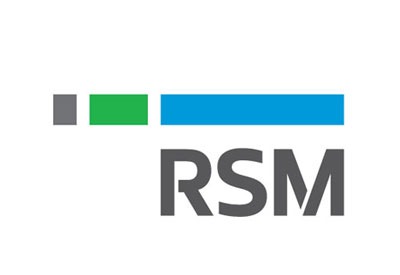
If you are a small business owner there are a myriad of business risk areas you need to be aware of. Trish Cassidy, Senior Manager of RSM Australia, has been involved in the restructuring and advisory industry for the majority of the past thirty years. She has seen many businesses successfully turned around as a result of early action on the part of directors and business owners. Unfortunately business failures usually occur where action is taken far too late to enable any chance of turnaround or restructuring.
Being the best in your game is not enough in the world of small business. It doesn’t matter how good a builder, chef, salesman, or even IT contractor you are – if you don’t keep a close eye on the financial affairs of your business there is a very good chance of failure. There will always be events which may significantly impact upon your business which may be outside or your control, however early action to mitigate the risk will increase your business’s chances of survival when they do occur.
Trish provides some essential tips to reduce your risk as either a business owner in your own right, or as a Director of a trading company.
Do you have exposure to one or a few major customers? What would happen if they can’t pay your bill?
- Be aware of how the client is paying. Are they paying within your terms? Are they paying with debt factored finance as this can be an indicator of cash flow problems.
- Keep in touch with your customers – close contact can provide good and timely information on their circumstances. Are they giving excuses for non-payment, such as my customers haven’t paid me? Again, this can be an indicator of cash flow problems or even insolvency.
- Have your customer’s cheques bounced? Yet another indicator of cash flow problems.
- Don’t’ be fooled by a flashy exterior – flash cars, premises etc. – flashiness does not necessarily equate to solvency.
- Keep a close eye on your debtors ledger and any debts which are outside your terms – take early action to limit credit to customers who aren’t paying within your terms.
- Where possible, spread your risk – the more customers you have, the less risk to you if one of your customers fails. If you are supplying goods, then ensure you have registered a PPSR – this is the only way you can recover goods if the customer’s business fails.
- Ensure that you have a formal credit agreement, preferably containing a personal guarantee given by the business owner – that way if the business fails, you have some recourse to recover the debt from the owners personally.
Many businesses rely significantly on other business goods, to enable them to provide their own goods or services. What would happen if one of your key suppliers fails- will this impact upon your ability to deliver your own goods or services?
- Seek out alternative providers of your essential supplies
- If you are in the building industry for example – do not place sole reliance on one subcontractor or supplier. If they can’t deliver – you will need other relationships to enable you to meet your own targets.
Being a Director of a Company, or a small business owner brings with it many risks to the individuals in the event that your business fails. Many of these risks are not avoidable but can be mitigated by vigilance.
- Keep your accounts up to date and review them regularly – seek out explanations for unusual trading activity, significant increases in creditors or debtors, or reductions in cash availability. Ensure that your bank account is reconciled regularly.
- Keep an eye on your working capital – current assets should always be at least greater than current liabilities as a guide. The higher the ratio – the better the working capital availability.
- Have a back-up plan if one of your major customers fails to pay – how will you pay your own bills now? Do you have an alternative source of finance for an emergency?
- Read the fine print on credit applications – these will often require personal guarantees of Directors, and often even contain clauses enabling creditors to charge your personal property to protect their interests. If your business fails – your own personal property may be at risk.
- Trusted advisors are a must – seek professional advice or help from your accountant, book-keeper, and solicitor as required.
- Does your business have an overdraft? How is the business finance secured – by your own personal property? What happens to your house if the business fails?
- Are your superannuation and GST/PAYG obligations up to date? Early action to enter a payment arrangement if necessary, can reduce the risk that the ATO will take firmer action – such as winding up applications, or issuing Director Penalty Notices. If the ATO issues a Director penalty notice to you – Immediate and urgent action is essential, as this can result in you becoming personally liable for Company debts.
- Are your tax lodgements up to date? If your Company’s tax liabilities are not reported within three months of the
due date, and a Director Penalty notice is issued – the only way to avoid personal liability is by payment of the debt. - Ensure your insurances are paid up to date – failure to adequately insure can be catastrophic! Obtain professional advice regarding your insurance needs.
- Know what your off-balance sheet obligations are – do you have long term leases on property, what if you have to make some staff redundant – these liabilities won’t appear on your balance sheet, but represent additional exposure to the business
- Ensure that your staff are capable, and trustworthy.
- Many individual bankruptcies in Australia are the result of Company failures, where Directors have become liable to insolvent trading claims by liquidators. There are only very limited defences under the law at present to such a claim. In short, a Director has a clear obligation to be aware of the financial circumstances of the Company. It can be a defence where a director has believed on reasonable grounds that a competent and reliable subordinate was monitoring the company’s solvency position and keeping the director informed.
Many bankruptcies also occur as a result of bad luck such as illness, inability to work unexpectedly, but it is Trish’s experience that the majority are as a result of people living beyond their income or means, or the failure of small business or partnership businesses. The tips mentioned previously apply equally to partnership and sole trader business, however some additional factors which may impact on personal exposure relate to the role of guarantors of other people’s debts.
- Do not guarantee the debts of any other person unless you are fully aware of the limits of your potential liability if they do not pay – always read the fine print, or seek professional advice regarding your rights, obligations and potential exposure
- What are you risking if you do guarantee the debts of another person?
- Have a written agreement in place in relation to any loans you make to any other person (including your family).
- Do not agree to be a Director of a Company, unless you intend to participate fully in the financial and business affairs.
Ignorance is not a defence, and you may be personally liable for company debts in the event that it fails.
Trish is the only female Registered Liquidator in the ACT, and is one of the most experienced insolvency practitioners in the ACT, with the benefit of more than thirty years’ experience in the Restructuring and Recovery industry.
If you have any concerns related to any of the considerations discussed in this article, we encourage you to seek professional advice
as early as possible.
For further information, please contact Trish Cassidy, Senior Manager in RSM
Australia’s Restructuring and Recovery division, on [email protected]
or call 02 6217 0370.


